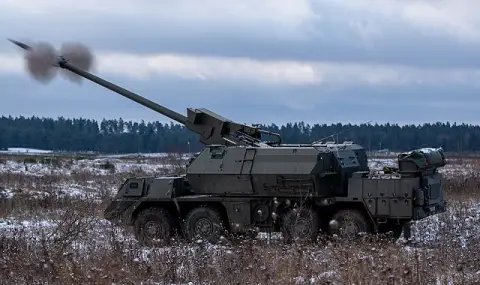Ukraine's European allies continue to increase domestic production of materials and address shortages that hinder the production of artillery ammunition.
The old continent is breaking its dependence on China.
This is stated in the daily analysis of the Institute for the Study of War (ISW).
German arms manufacturer Rheinmetall announced on April 7 that the company will acquire and repurpose German nitrocellulose manufacturer "Hagerdorn-NC" for weapons production as part of an ongoing effort to increase Rheinmetall's capacity to produce propellants for ammunition, particularly for 155mm artillery shells.
Nitrocellulose, also known as gunpowder, is a key component for modern artillery ammunition and other munitions that use gunpowder.
Rheinmetall currently produces nitrocellulose at plants in Switzerland, Spain and South Africa and plans to increase gunpowder production by over 50% by 2028.
Rheinmetall's subsidiary Nitrochemie Aschau - which produces nitrocellulose, other components of gunpowder and dynamite - has increased its production capacity by 60% since the start of Russia's full-scale invasion of Ukraine in 2022. and plans a further 40% increase by mid-2025.
Rheinmetall CEO Armin Paperger and Saab CEO Mikael Johansson warned in April 2024 that the People's Republic of China (PRC) supplies the vast majority of European ammunition components, including those needed for nitrocellulose, leading to bottlenecks hampering the production of European artillery ammunition.
In March 2025, Bloomberg reported that Rheinmetall had expanded its supply of cotton liner, a key component for nitrocellulose production, which had been facing a critical shortage in the spring of 2024. - from Europe and countries friendly to the European Union (EU) and has stockpiled several years' worth of the liner.
NATO Secretary-General Mark Rutte told CBS News on April 7 that he had urged U.S. and European leaders to increase defense spending and defense industry production amid fears of future Russian aggression against Europe.
Rutte noted that NATO countries together produce four times less ammunition than Russia does, even though NATO's combined economy is 20 times larger than Russia's.
The Kremlin continues to deny the legitimacy of the Ukrainian government as part of its efforts to claim that Ukraine is not a legitimate negotiating partner and to demand Ukrainian regime change and demilitarization.
These statements by the Kremlin are part of a broader effort to undermine the legitimacy of the Ukrainian government and recast long-standing Russia's demands for regime change and demilitarization in Ukraine.
Putin and other Russian officials had previously temporarily halted promoting claims of Ukraine's alleged illegitimacy following Putin's phone call with U.S. President Donald Trump on February 12, but later resumed such claims on March 28.
Ukrainian officials have not reported any Russian long-range missile or drone strikes on the night of April 6-7 or during the day of April 7, following the largest Russian strikes in more than a month on the night of April 5-6.
It remains unclear why Russian forces have not carried out any long-range strikes, after doing so daily since December 12, 2024. since.
Russia used the large-scale series of missile and drone strikes on the night of April 5-6 to experiment with its strike packages to increase their effectiveness, and it is possible that Russia is preparing to conduct another large-scale strike package in the near future.
